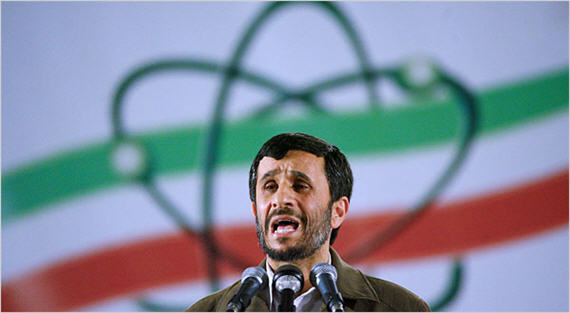National War College professor Bernard Finel makes an excellent point about why the hawks have the upper hand in the “war with Iran” debate. While he’s specifically taking to task recent columns by Stephen Walt, the argument applies equally to those, like myself, who have been arguing the folly of military action against Iran’s nukes:
[T]he ship has sailed on this. It sailed in 1979, and has been sailing in the same direction for 30 years. If you are relying on convincing the public and decision-makers that Iran is not a threat, you are going to lose the debate. If you are arguing, in effect, that we should just ignore them and rely on deterrence, that is also going to lose the debate.
The reason the neocons won the debate on Iraq was precisely because they were proposing a solution to a widely recognized problem. It may have been the wrong solution, and the problem was not as severe as they claimed. But the reality is that in policy debates, those able to credibly argue for a “winning” strategy to a problem will always have the upper hand over those proposing muddling through or living with risk.
Like Walt, I think the risk of a nuclear Iran is vastly oversold. Given that Josef Stalin, Mao Zedong, Kim Jong-Il, and several successive Pakistan governments have managed to possess and not use nuclear weapons over the years, I see no reason why the Iranian mullahs would be any different. They’re no crazier than Kim, certainly; indeed, they’ve demonstrated constantly over the last three decades that they’re rational, calculating actors.
But Finel’s right that this is a losing argument. Americans expect their leaders to take action to prevent risks and, while the probability of a nuclear Iran doing something foolish may be quite low, the cost of being wrong on that one is pretty high. (Indeed, that was ultimately what caused me to switch from vehement opposition to reluctant support for invasion of Iraq in 2003.)
Given this, Finel proposes several “winning” alternatives that address these fears by means other than war–not necessarily because he thinks any of them are actually good policies but because they’ll avert war. Absent that, he predicts,
If the debate turns into one where one side proposes war as a solution to the Iranian problem and the other simply denies there is a problem in the first place, the result will be war. Why? Because it will be too easy to paint the deniers as naive, particularly since the idea of an Iranian threat is so deeply embedded in American political culture.
I’ve already gone on record predicting that we’ll get through the year without going to war with Iran or, indeed, anyone else new. My guess is that Iran will ratchet up the tensions just enough to satisfy their domestic audience without crossing a red line that would force the United States to respond beyond a token strike. I believe that, like President Bush before him, President Obama has no desire to get the United States into a shooting war with Iran that could evolve into a regional conflagration.
But Finel’s road map is likely the best insurance against the heated rhetoric of the campaign from forcing his hand.
James Joyner is managing editor of the Atlantic Council.
Image: iran-nuclear-program.jpg
